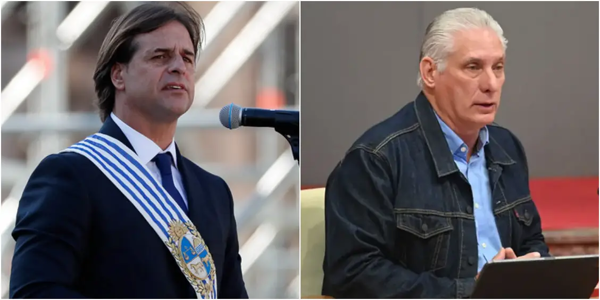
Uruguayans are called to vote on Sunday in elections to choose the successor of President Luis Lacalle Pou and renew Parliament, elections that present a struggle between the continuity offered by the government and the change proposed by the left.
The former mayor of Canelones (south), Yamandú Orsi, of the opposition Broad Front (FA), leads the polls with an average of 45 percent, followed by the former secretary of the presidency Álvaro Delgado, of the ruling National Party (PN), with 25 percent. If the winner does not exceed 50 percent of the votes, the next president will be decided in a runoff with the second on November 24, in which a simple majority is sufficient.
In total, there are 2,727,120 voters eligible to vote this Sunday between 08:00 and 19:30 local time, in 7,225 voting circuits.
Orsi, a 57-year-old history teacher, promised a government of dialogue, honesty, and economic growth with social inclusion. Delgado, a veterinarian who was also a senator, presents himself as the "reelection" of the government and proposed a "second floor of transformations" using the foundations left by Lacalle Pou (2020-2025), who is constitutionally prevented from immediate reelection.
The surprise of the campaign is Andrés Ojeda, a 40-year-old lawyer who raised the voting intention for the historic Colorado Party (PC) to 16 percent, defining himself as "pragmatic" ideologically. The PN heads the Republican Coalition (CR), an alliance of four parties, including the PC, who are competing separately in this instance and will support the candidate competing against the FA in a possible runoff.
Although nearly half of the population approves of Lacalle Pou's management (51), highlighted for his handling of the new coronavirus pandemic, drought, and inflation, he has not managed to transfer that popularity to Delgado. Voting is mandatory, and those who do not justify their absence receive a fine of about 1,740 pesos (41 dollars), which doubles for public officials.
Those over 18 years old can vote without age limit, and there is no mechanism for Uruguayans abroad to vote.
On the same ballot, the voter adheres to a candidate for president, vice president, and representatives for Parliament, all from the same party. Eleven parties present their respective presidential candidates, of which eight currently have parliamentary representation. The Chamber of Senators, with 30 members elected nationally and presided over by the vice president of the Republic, and the Chamber of Representatives, with 99 members nominated by each department, make up the Legislative Power.
Simultaneously, a plebiscite on constitutional reform regarding Social Security will be voted on, which eliminates the private pension system and raises the minimum retirement age to 60 years, which is rejected by the three main candidates and is promoted by some sectors of the FA. At the same time, another reform plebiscite will take place proposing to allow nighttime raids in homes, promoted only by the PN and the PC.














